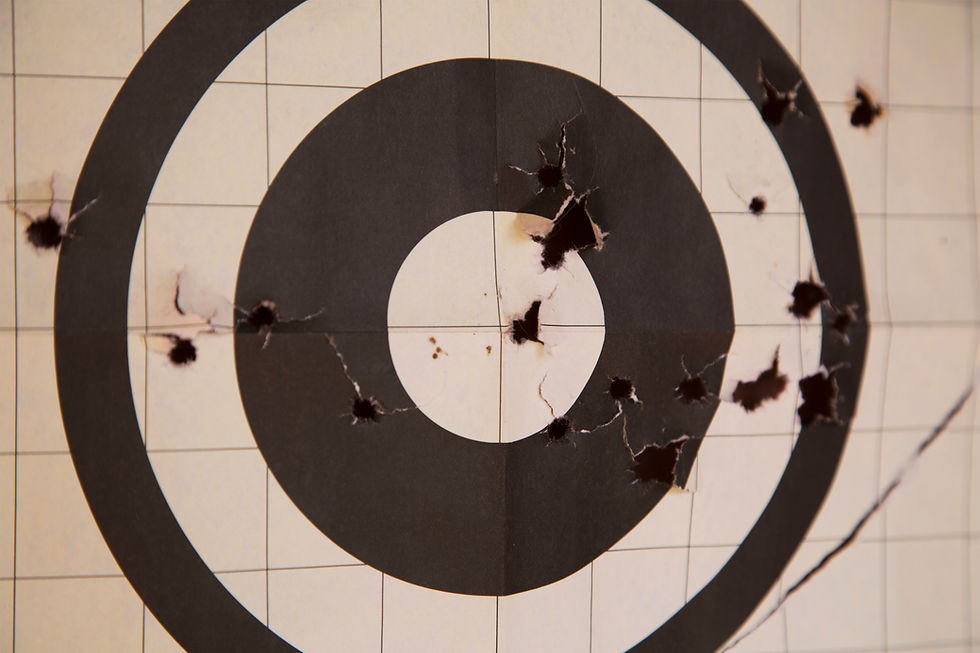Don't Be Steered! Three Areas of Caution
- Jamie Owen
- Feb 4, 2018
- 5 min read

Growing up in Denver, CO, I always looked forward to the annual National Western Stock Show and Rodeo. It usually takes place around January of each year. It's a great place to attend. The smells of leather, hay, mud, wood and of course other things, waft in the air. There are a lot of incredible animals to see and all sorts of interesting things to look at. I love taking my wife and kids when we happen to be visiting my family in January. Among the many animals that are amazing to look at are steer. They are beautiful and powerful animals. They are mesmerizing to watch. These animals are magnificent to look at and bring joy to my heart. The term "steer" in the appraisal profession does not evoke the same warm and fuzzy feelings.
Steering In Appraising
What does it mean to be steered when performing an appraisal. A more common term is to be influenced, directed or instructed. Why is that bad? According to USPAP Standards Rule 2-3, each real property appraisal must contain a signed certification that includes a statement that says something similar to the following: "The reported analyses, opinions, and conclusions are limited only by the reported assumptions and limiting conditions and are my personal, impartial, and unbiased professional analyses, opinions, and conclusions." Additionally, in our certification we have to have a similar statement that says, "My engagement in this assignment was not contingent upon developing or reporting predetermined results."
What are some ways in which an appraiser might be influenced if not careful. There are many. The following are the top three, at least in my mind.
1. Allowing the home owner's opinion of value influence us.
I know some appraisers who make it a habit of asking the home owner what they think the market value of their home is. I have always wondered why an appraiser would ask that. After all, isn't that our job to determine? An appraiser cannot be influenced by this information, so why ask for it? If it is made known to us, all it may do is add to our own anxiety, if during our analysis, it becomes clear that the market value is less than the home owner's expectations. If we are not careful, that may lead to our analysis being swayed in the direction of the home owner's expectations due to not wanting to displease them. Sometimes a home owner will offer us a copy of another appraisal that was completed on their home. There may be different reasons for doing so. Many times it is because they are hoping that we will appraise their property for at least what the other appraiser estimated the market value to be. Whether we decide to take that information is a personal decision. However, I would recommend not accepting it. I kindly explain to the home owner that I complete all of my own work and so that information is not needed. What if we did accept that older report and copy some of the information in it? On page 193 of the 2018-2019 USPAP under the heading "Plagiarism" it states that "Presenting an appraisal report as yours when all or part is the work of someone else is clearly misleading. So it would really be inappropriate to use another appraiser's analysis in our report in this situation.
2. The purchase agreement.
The purchase price in a purchase agreement is another area in which we have to be careful. USPAP states that if possible, we must analyze the purchase agreement if it is available. USPAP 2018-2019 states on page 109, "A sale price (in a pending sale or a settled transaction) is part of the information an appraiser is required to ascertain in accordance with Standards Rule 1-5(a) and (b). Receiving this information with a request for service is appropriate, but accepting an assignment with the price in an agreement of sale, opinion, or listing or a sale price in a settled transaction as a predetermined value in the assignment violates USPAP.

Does that mean that if our analysis leads us to the determination that the purchase price and market value are the same, this is unethical? No. According to USPAP 2018-2019 on page 199, it makes the following comment: "A contract price can be a good indicator of a property's market value, and it may be logical and reasonable for the appraiser to conclude that they are the same. However, this is not always the case. In some situations, a contract price will exceed what is typical in a market. In other situations, a contract price will be less than what is typical. A contract sale price, while a significant piece of market data, must not become a target in an appraisal assignment. Rather, competent analysis of relevant and credible market data must be the appraiser's basis for a market value conclusion." I think that most appraisers today are doing good in this area.
3. What other appraisers are documenting.
What other appraiser's are documenting in their reports with regards to market trends, home quality or condition and/or adjustments may influence our analysis which may have a direct impact on our value estimate. With big data becoming much easier to share, appraiser's have the ability to now have access to what other appraiser's rate the condition or quality of a property to be. Some data sources site what some appraiser's are using as adjustments. I am not opposed to analyzing that kind of data, and it can be useful. However, I would advise against making that the sole source of an appraiser's data and support when making a decision in what to document in our appraisal report. How did the other appraiser's come up with their data? If we can't explain it, we probably shouldn't use it. My recommendation is to not go with the flow. Don't have the mentality that just because a lot of other appraisers are documenting something a certain way, that we should. Some appraisers have told me that they feel that if everyone is documenting things the same, than no one will stand out. They are afraid of standing out and being targeted with questions about support for their work. My attitude is that it's okay to stand out when what is making us stand out is our own supportable analysis and reporting. Going with the flow can lead to disaster. No state board is going to accept as a defense, "We were just doing what everyone else is doing."
When it comes to being an appraiser, remember that the bull's-eye is where the data and proper analysis leads us. It's not what our client's value expectations are or what the purchase price is. Sometimes they match up. Sometimes they don't. Make your own independent analysis and report your findings. Let the data and your own analysis be your guide. Don't be swayed by others. That will help us to have greater confidence in our reports. Our clients will also have more confidence in our ability to do what we were hired to do! We have to make hundreds of decisions in every appraisal report we complete. It takes a lot of discipline to ensure that we are not being improperly influenced. In the end, being cautious in the areas discussed will serve as a protection for us and it will make us stand out, in a positive way, to our peers and our clients!
* Top picture taken at Dina's Restaurant in Ellicottville, NY


































Comments